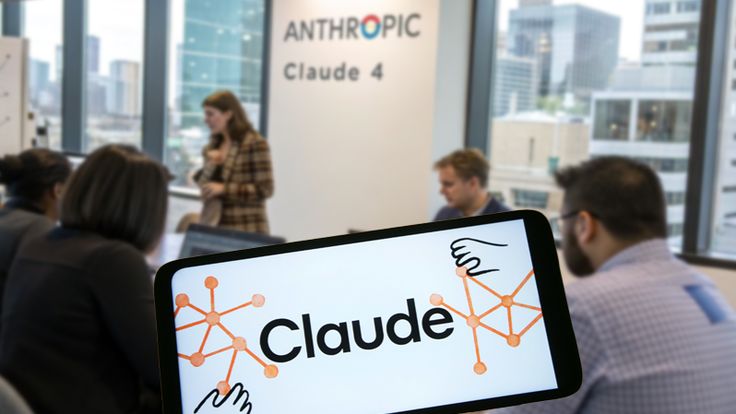
Anthropic Claude 4: The AI That Codes for Seven Hours Straight, Redefining Sustained AI Performance
Jul 31, 2025 |
👀 105 views |
💬 0 comments
The world of artificial intelligence is abuzz with Anthropic's latest advancements, particularly the impressive capabilities of its new Claude 4 models. The flagship Claude Opus 4 has made headlines for its ability to code autonomously for an astonishing seven hours straight, a feat that marks a significant leap in AI's potential for sustained, complex tasks.
This prolonged performance highlights a critical evolution in AI: moving beyond quick, single-response interactions to handling multi-step, long-horizon projects that traditionally required human oversight and endurance. Rakuten, a global e-commerce and internet services company, provided early access feedback, confirming that Claude Opus 4 ran "independently for seven hours with sustained performance" on a demanding open-source refactoring project.
What Makes Claude Opus 4 a Game Changer for Developers?
Anthropic emphasizes that Claude Opus 4 is their "most intelligent model to date," pushing the frontier in coding, agentic search, and creative writing. For developers, its capabilities are particularly transformative:
Unprecedented Endurance: The ability to maintain focus and context over such extended periods is a breakthrough. Previous AI models often suffered from "performance degradation" or "context window limitations" during long coding sessions. Claude Opus 4, however, can process and reason over massive codebases, making it a true partner for day-long engineering tasks.
"Extended Thinking with Tool Use": This key feature allows Claude to "alternate between reasoning and tool use to improve responses." It's akin to a human developer pausing to research, analyze, and then apply external tools (like web search) to solve a problem. This depth of thought leads to more coherent and robust solutions.
Memory Capabilities: Claude Opus 4 can create and maintain "memory files" to store crucial information, acting like a persistent knowledge base for ongoing projects. This means it can remember project structures, coding patterns, and user preferences across multiple sessions, enhancing continuity.
Leading Benchmarks: Claude Opus 4 has achieved industry-leading results on critical AI coding benchmarks like SWE-bench (72.5% solve rate) and Terminal-bench (43.2%). SWE-bench, in particular, assesses an AI's ability to independently resolve real-world software engineering issues from GitHub, often requiring PhD-level programming competence.
"Claude Code" for Seamless Integration: Anthropic has also made "Claude Code" generally available, a tool that integrates directly into popular IDEs like VS Code and JetBrains. This allows developers to assign long-running coding tasks to Opus 4 and even propose edits directly within their files, further streamlining workflows.
Agentic Capabilities: The model's enhanced agency means it's not just generating code; it can proactively identify problems, suggest architectural improvements, and even handle complex multi-file changes without touching irrelevant code.
Beyond the Hype: Practical Implications
While the "seven hours straight" figure is striking, the broader implication is that Claude Opus 4 fundamentally changes the human-AI development relationship. It empowers AI to become a genuine collaborator, capable of tackling projects from conception to completion, allowing human developers to focus on higher-level design, innovation, and strategic oversight.
This advancement is expected to accelerate software delivery, potentially reshaping technical hiring and organizational design within companies. However, it also raises new questions about robust review processes, code safety, and compliance, as AI agents can now operate autonomously for extended periods.
Anthropic's Claude 4 series, particularly Opus 4, marks a significant milestone in AI development, pushing the boundaries of what intelligent systems can achieve in sustained, complex cognitive tasks like coding. It's a clear signal that the future of software development will be increasingly intertwined with powerful, persistent AI partners.
🧠 Related Posts
💬 Leave a Comment
